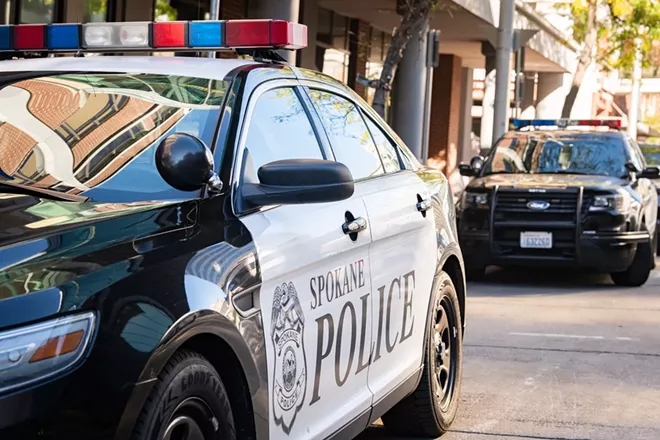Community safety is one reason we have a government, but across Washington state governments are failing to provide this basic service. For crime and safety, Spokane, for example, is ranked in the bottom 3 percent of U.S. cities, according to data compiled by neighborhoodscout.com. Total crime in Spokane is 145 percent above the national average. Property crime is 163 percent above the national average, and violent crime is 55 percent higher. In Spokane, the murder and assault rates are twice the Washington state average, all according to the FBI Uniform Crime Report. These aren't just statistics; they're signs of a weakening community.
You'd think with those numbers that elected officials would come together and implement a plan to restore safety, but too many talk past each other.
Many Republicans talk about needing more officers, while many Democrats talk about needing more training. Some talk about the need to prosecute crime, while others talk about addressing root causes.
Thing is, they're both right.
First, we need swift action.
City Council members and county commissioners need to publicly encourage officers to arrest those who assault citizens, vandalize businesses, steal property or deal drugs, and make it clear they expect prosecutions.
Judges need to harshly sentence anyone convicted of a crime while armed. While much attention has been focused on police killing suspects, 94 percent of people killed by police are armed. Committing a crime while armed must be severely punished.
Every state legislator should commit to repealing the anti-police laws passed two years ago. The combined effect of those laws has been to handcuff police officers trying to investigate a crime or pursue a suspect.
And police unions, in exchange for this support, need to expedite the discipline and firing of abusive or negligent officers.
While all of the above is necessary, it won't build a just community.
To do that we need to rebuild a broken mental health system, recriminalize drug possession, reclaim our public spaces and overhaul our foster care system.
Among the 50 states, Washington's mental health system ranks near the bottom. Individuals with untreated mental health issues too often are left to the streets — and are 16 times more likely to be killed by police officers. Before blaming the police, as a community we should acknowledge we've failed these people. If a society is measured by how it treats its most vulnerable, we have work to do.
Washington's experiment with decriminalizing hard drug possession, largely spurred by a state supreme court decision, has failed. Legislators need to pass laws making hard drug possession a crime that results in more than a year of confined rehabilitation, during which time mental health care, vocational training and a post-incarceration housing plan will be provided.
If a society is measured by how it treats its most vulnerable, we have work to do.
It's a short skip and a jump from a broken mental health system and decriminalizing drug possession to homelessness spilling out onto our streets — and to crime rising on those streets and around camps. Those who have untreated mental issues or are addicted to drugs too often do not seek services. Tolerating camping on public property enables that destructive "choice." Local and state officials should make it clear that when alternative shelter exists, there is a zero tolerance for camping on public property. To do otherwise is cruel, not compassionate.
Washington also needs to overhaul its foster care system. Repeatedly, media exposés and court orders have revealed the state to be warehousing kids in motels and cars. Those who are placed in homes often are bounced around without any stability and then are aged-out onto the streets with little support.
Immediate stern action could begin reversing Spokane's crime statistics, but addressing root causes and building a just community will require reinventing 20th century mental health and social systems. ♦
Bill Bryant, who served on the Seattle Port Commission from 2008-16, ran against Jay Inslee as the Republican nominee in the 2016 governor's race. He is chairman emeritus of the company BCI, is a founding board member of the Nisqually River Foundation and was appointed by Gov. Chris Gregoire to serve on the Puget Sound Partnership's Eco-Systems Board. He lives in Winthrop, Washington.

